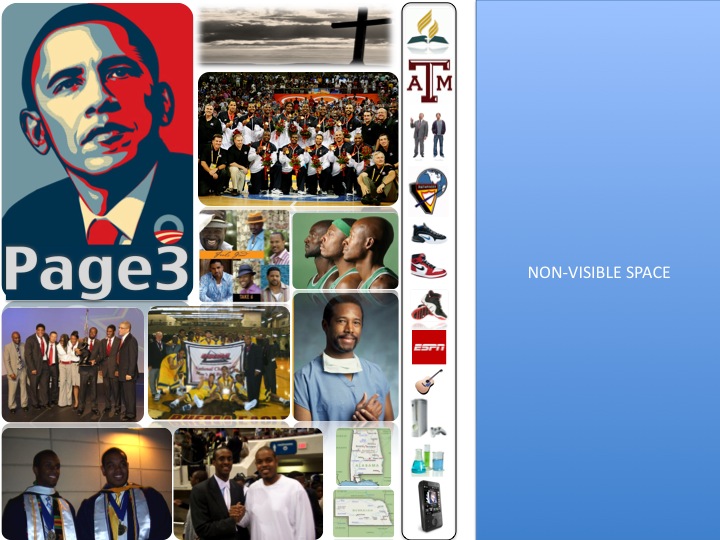Real With You
-----------------------
The Naked Truth
by Anthony “Tonéx” Williams II
Life's a masquerade filled with so many faces
Faces that aren't so real
Hearts that really can not feel…
-----------------------
I know the truth now and I feel like crying—but I’m not sad,
And I feel like yelling—but I’m not angry,
I feel like screaming—but I’m not scared…
I remember how tight we used to be
And I want You to draw me closer to Thee
Lord, I try to live an honest life
So why do I try to fool God's people all the time?...
-----------------------
I’m not afraid no more, and I got out alive, n****,
I peeled off layers of bulls*** & falsehood,
I peeled off years of slander and embarrassment…
Notice what it takes
And Lord I don't want to be fake
For there's another side of me
Lord, I've got to get it straight
And it's my desire to be more like You each day
But the enemy keeps trying to lead me further astray
-----------------------
I’m wiser, I’m thicker, I’m sexy, I’m bold
I’m hot, I’m next, I’m saved to the bone
I’m prophet, I’m model, I’m singer, I’m actor
My swagger is corporate—my thug life is dapper
I got out just in time before I lost my mind
I’m good, I’m cool, I’m alright, I’m fine
CHORUS- I just wanna be real with You
I just wanna live a life that's true
I just wanna be real with You
-----------------------
Yup I did it, I made it—the genius, the faggot,
The weirdo, the homo, the hobo, the magnet
Cuz I keep drawin’ yo a** back, you wanna see more
Give me 3 years; I’ll spark a revival bigger than William J. Seymour
Baptizin’ all the people that yo a** can’t reach
Use my hands to grab a basin and wash my enemies’ feet
Don’t judge a tree by the fruit—
You’ve gotta go to the root
There’s nothin else that y’all can say to me—it’s too late, GET OUT
Cuz you pollute the city like the smog in LA
I ain’t gay, I’m a real man. Come see me, I’m TONEX, n****!
And I am The Naked Truth.
As incredible as it may seem, on either side of the lines above are the words and thoughts of just one man.
We can never judge a person’s heart with complete accuracy, no matter how sincere or careful we are to observe.
But when Tonéx, a gospel artist, a Christian, says these words, we’ve got to sit up and assess what could’ve gone wrong.
How are lines such as these created? Who was or wasn’t there when these lines began to form? What events or occurrences could create such a drastic difference between who a person once was and who they are today?
He has given us his own struggles between the lines. This article is an attempt…to read the lines.
_______________________________________________________________________________
Anthony Williams II, or “Tonéx,” officially arrived on the gospel music scene in 2000 with his first album Pronounced Toe-Nay. His music was far more progressive/worldly/rhythmic than even the more contemporary artists of the previous decade. He achieved moderate success with his first album, finally getting noticed after his second album’s single “God Has Not 4got” was a success on gospel radio stations across the nation.
Two years later, a 25-year-old Tonéx released his signature album, the double-disc Out the Box, which ultimately was his bold stance in taking gospel music beyond the walls of church standards and tradition. He took risks in sampling from secular music, including a portion from Michael Jackson and the theme song from the Family Feud TV show. But the risks paid off—Out the Box was the best-selling gospel album of 2004, and he was the recipient of six Stellar Awards and the Grammy for ‘Best Soul Gospel Album.’
But in the midst of his incredible four-year journey to the top of the gospel charts, Tonéx, as he later revealed, struggled with pornography, a troubled and downward-spiraling marriage, and a clear identity crisis that was reflected in his numerous hair and clothing changes. But in the midst of all of his success, none of these issues were dealt with—they just festered.
_______________________________________________________________________________
And when 2005 came, all that was festering came to the forefront…and left his life in shambles.
In the course of one year, he buried his father, divorced his wife Yvette, and was sued for $1 million by his record company. The pain of this year caused him to enter an early “retirement” from the gospel music industry. In the past three years, Tonéx has released two albums straight to iTunes and performed across the world, but still the pain from all of his hurting was never acknowledged.
Tonéx won the tough battle to become a mainstream gospel artist. But with the increased fame and success of his career, he also faced greater and greater scrutiny from purists who saw his persona as being obtrusive to the gospel message. He managed to make it to the top of the charts singing his signature style of music—on his own terms—but he became a posterboy for conservatives when noting the secularization of Christianity as a whole. His greatest critic has by far been G. Craige Lewis of ExMinistries, who has openly attacked him in his DVDs and presentations. He and his followers have fought many of the artists in gospel that they believe to be “secularizing” their music.
Again, as he later indicated, Tonéx has been sensitive to people’s views and treatment of him, particularly relating to his sexual preference, for much of his life. As a musician in the Christian church, especially in the African-American culture, his behavior and eccentricities were always question marks to his character, regardless of the content of his music.
Despite this sensitivity, Tonéx has a swagger that is born of many sources. He is a musical prodigy with arguably the most incredible vocal ability in gospel music today. His dancing ability comes in a close second. He also has a sense of style (when not in excess) that makes him appealing to a mass market. He knew he had the goods. His talents enabled him to perform beyond the wildest dreams of most gospel artists and, seemingly, in his mind, placed him above being “boxed-in” with them. So as others offered criticism, his style of music didn’t get more reserved—it became even bolder.
His confidence had always been palpable in his music, but he then started to even verbalize it by praising himself in songs that should’ve been praising God. His talent and his confidence in himself became his first line of defense against the people around him.
So after his life came crashing down, all the boldness, confidence, and swagger he carried turned into venom. He raged against the sources of his pain—his ex-wife, the name-callers, and the haters. He decided to strip down the walls of discretion, much as his music attempted to strip down the walls of “church-appropriateness,” and send a message to the people who had caused him pain.
He released the angry, profanity-laced tirade entitled “The Naked Tr
uth” on YouTube, culminating in the loss of his Zomba contract, and the s
uspension of his CD project.
_______________________________________________________________________________
So there’s Tonéx…a 21-year-old gospel artist singing about sincerity and opening up to God…
…and there’s Tonéx…a now 29-year-old (genre?) artist singing about being a survivor and shunning the haters he’s faced all his life.
Tonéx…a young believer seeking salvation…
…and Tonéx…a young believer spiritually, mentally, and emotionally disconnected from God and his church.
There are so many reasons Tonéx’s become Tonéx’s. But just like in the life of Tonéx, nobody cares to look back—everyone just looks at the mess-of-a final product and shakes their head. But why not instead choose to learn from this situation, especially since 70% of Tonéx’s between the ages of 18 and 30 are leaving the church? Why let someone who has an abundance of lessons to teach us about ourselves slip through the cracks?
Tonéx’s words in the song Real With You are haunting. They tell the story of a
young man who is seemingly trapped in a world of insincerity, a world where hearts “really cannot feel” a thing at all. He sees a need in his own life for change, and he doesn’t want to be the same masked man as the others around him. Whether a general or a specific sin, he saw a need for G
od’s intervention, in hopes that he could be “real” and “live a life that’s true.”
But his words in “The Naked Truth” are all about his confidence in himself. It’s as though he is trying to say that HE has Jesus, but the people around him were saying he didn’t, and his message to them was a metaphorical finger waving toward them in the air.
There was no interview done to complete this article. We cannot know for sure the condition of Tonéx’s heart, nor of his ex-wife’s, nor of the people he felt the need to embolden himself against through song. But we can still look at this sad fall from grace, even if just as human beings, to discover lessons that can benefit all of our lives.
Tonéx’s story is about loving others. Regardless of how people are viewed, it’s always less important than how they are treated.
Tonéx’s story is about loneliness. It’s difficult to find your way with God when the people around you don’t show Him to you.
Tonéx’s story is about suffering. Some people see their greatest works after suffering—others lose faith and find themselves spiraling back towards earth.
Tonéx’s story is about pride. When you can’t see yourself, and you try to control yourself, you can sometimes lose yourself, regardless of your talent and ability.
Tonéx’s story is about church folk. There is nothing more deflating than to come to a place where God accepts you as you are to find that no one else does.
Tonéx’s story is about family. It’s presence can cure an abundance of evils—it’s absence can generate an abundance of pain.
Tonéx’s story is about sincerity. When we fail to see it or acknowledge it (Real With You) and come to the aide of those who need help, we leave them bitter, vulnerable creatures. No one wants to be closed back up after they’ve opened up.
We don’t know how this story will end. All we can control is whether or not we choose to learn from it.
And I sincerely HOPE we do.












No comments:
Post a Comment